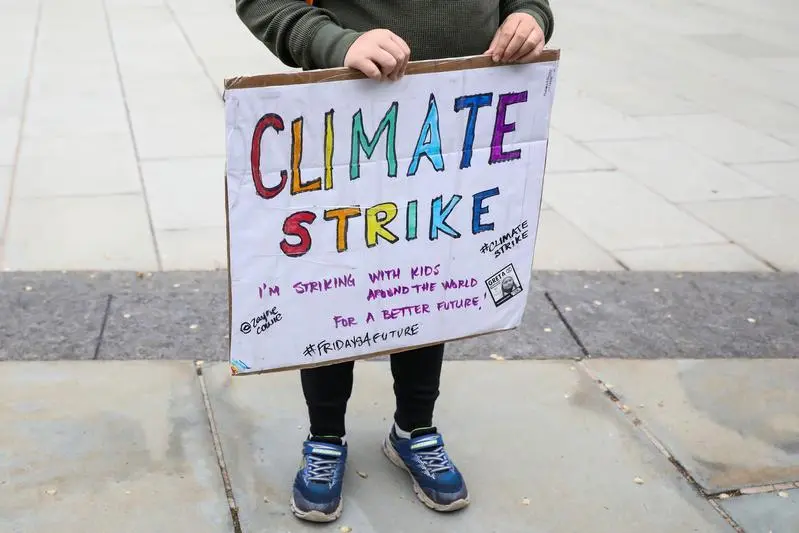PHOTO
NEW YORK - A lone U.S. regulator sounding the alarm on climate risk is missing a trick or two. Rostin Behnam, one of the five commissioners at the Commodity Futures Trading Commission, told the New York Times on Tuesday that financial-sector losses from global warming could rival the financial crisis of 2008.
The various effects of rising temperatures could lop perhaps a tenth off U.S. economic output by the end of the century, according to a report last November by the congressionally mandated U.S. Global Change Research Program. That’s a huge figure given GDP may be approaching $70 trillion even by mid-century, according to the Congressional Budget Office. And that may be conservative given the likelihood of far greater weather variability and the like.
Many in President Donald Trump’s administration reject such consequences, as well as the science behind them. Behnam is only able to contradict them because, although appointed by Trump, he is one of the legally mandated Democratic representatives at the CFTC. That gives him, as he puts it, “a unique bully pulpit.”
His warning should get some attention in D.C. After all, the subprime mortgage-induced crash more than 10 years ago cost the country an estimated $6 trillion to $14 trillion, split between lost GDP growth and declining household wealth, according to a 2013 study by the Dallas Federal Reserve.
Yet politicians prefer positive talking points. A report last week from CDP, a nonprofit which pushes companies to acknowledge and address climate change, suggests profitable opportunities outweigh the risks by two-to-one. That ought to resonate with fans of markets and capitalism, regardless of their blindness to climate change.
Responses from around half the world’s 500 largest companies suggest while almost $1 trillion could be at risk from the impact of a warming climate, rising sea levels and so on, there could be some $2 trillion in potential upside from providing low-emission technologies and services, for example. Financial-services companies accounted for a big chunk of that.
Climate change could make 2008 look like a breeze – and Behnam’s comparison to that era may spur more U.S. companies, especially in finance, to assess their exposures. Many don’t yet do so, according to CDP. From a business perspective, though, it’s the opportunities that could prove most persuasive.
CONTEXT NEWS
- The financial risks from climate change are comparable to those of last decade’s financial crisis, a top regulator at the Commodity Futures Trading Commission told the New York Times on June 11. Commissioner Rostin Behnam intends to set up a panel to investigate the potential impact of climate change on the financial sector.
- Environmental lobby group CDP on June 4 issued a report identifying almost $1 trillion of potential financial risks from climate-related effects at 215 large companies. A similar number of businesses identified opportunities – for example, providing low-emission products and services – with positive financial impacts totaling over $2 trillion.
- CDP said financial services, fossil fuels and power were the sectors in which the most companies identified such opportunities and risks. U.S. companies were among those less likely to report substantive downside and upside, while most European companies did identify these risks and opportunities.
(Editing by Richard Beales and Amanda Gomez)
© Reuters News 2019





















